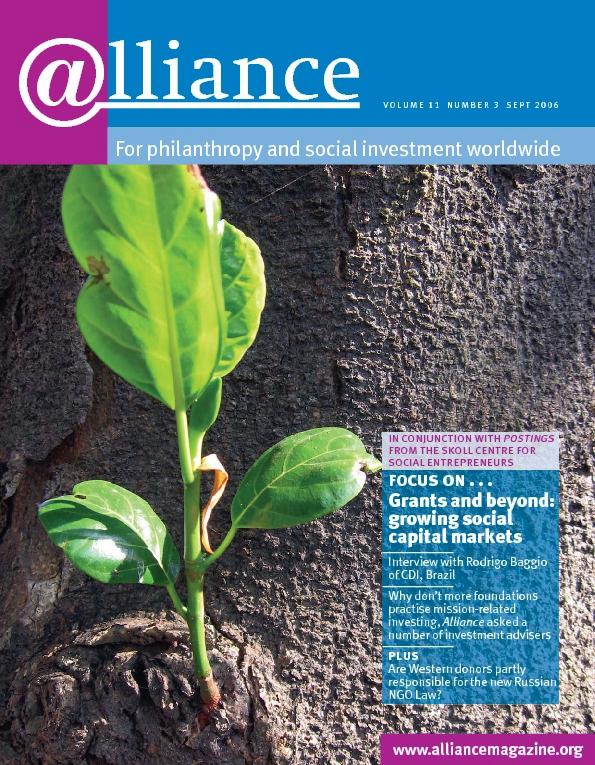The US social capital market is the largest in the world, with the affordable and supportive housing sector representing a key asset class. Common Ground, the leading developer of supportive housing in the US, has recently completed an innovative debt transaction which will enable its continued expansion in the competitive New York real estate market. The deal provides some insights into the US market and how hybrid transactions, which blend philanthropic and commercial funds, can serve as useful tools for social entrepreneurs.
The boundaries between philanthropy and investment have become increasingly porous, with investors incorporating social, environmental and ethical considerations into their investment selections. According to the US Social Investment Forum’s 2005 Trends Report, financial assets totalling $2.29 trillion are managed using screening, shareholder advocacy or community investing. These assets – held by pension funds, foundations, religious organizations and community development financial institutions — account for 9.4 per cent of the total $24.4 trillion held in equity and fixed income securities in the US. While these numbers would suggest a vibrant social investing sector, over 99 per cent of these are publicly traded securities, which have limited value as capital for social entrepreneurs.
The community investment sector
The $20 billion in community investment represents an essential source of funding for social entrepreneurs, despite its small size relative to other strategies. Community investing makes it possible for local organizations to provide financial services to low-income individuals and to supply capital for small businesses and community services, such as affordable and supportive housing, childcare and healthcare. Outside the US, this strategy includes investments in microfinance institutions. Although some equity products exist in this sector, the majority is debt. These products can earn market rates or reflect governmental risk management or subsidy programmes.
Subscribe now from only £45 a year!
This article is only available for our subscribers
Existing users can login here




